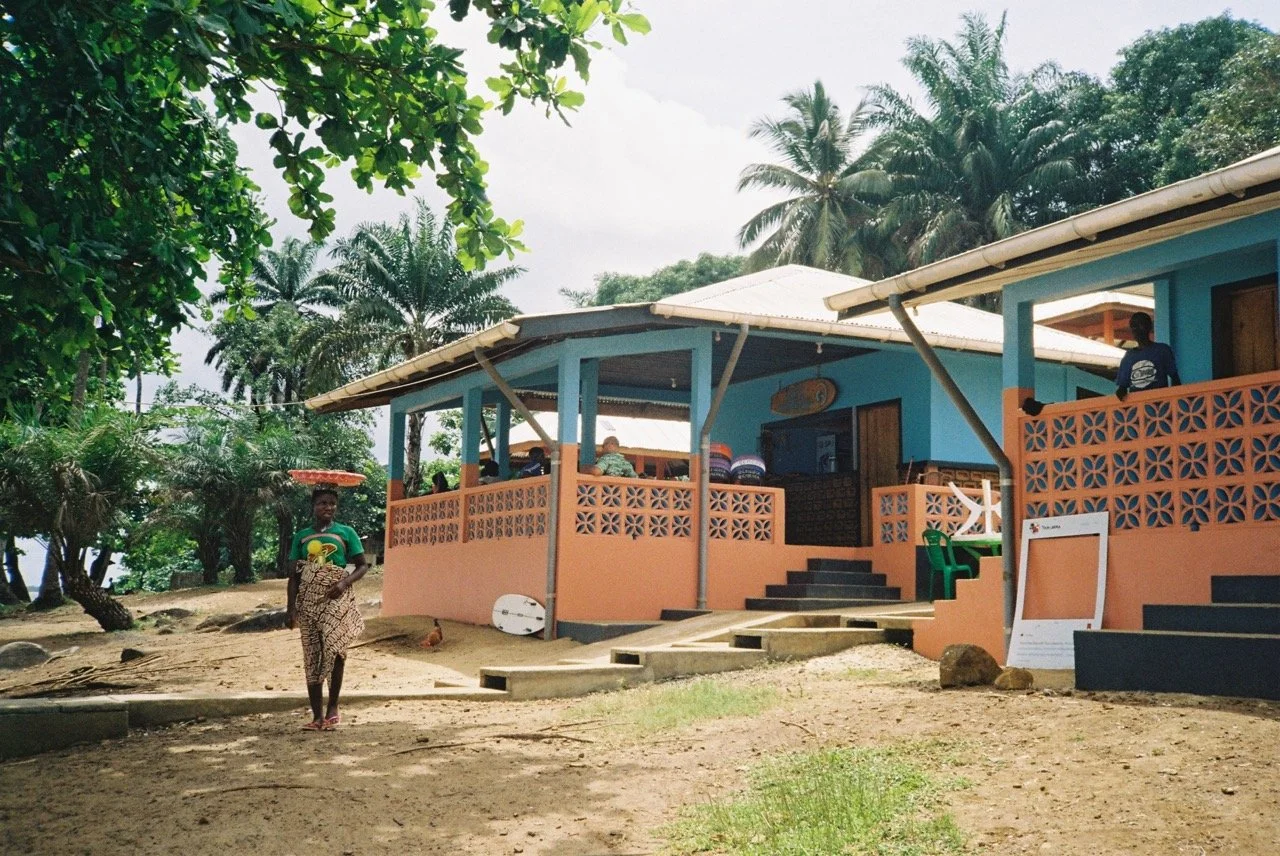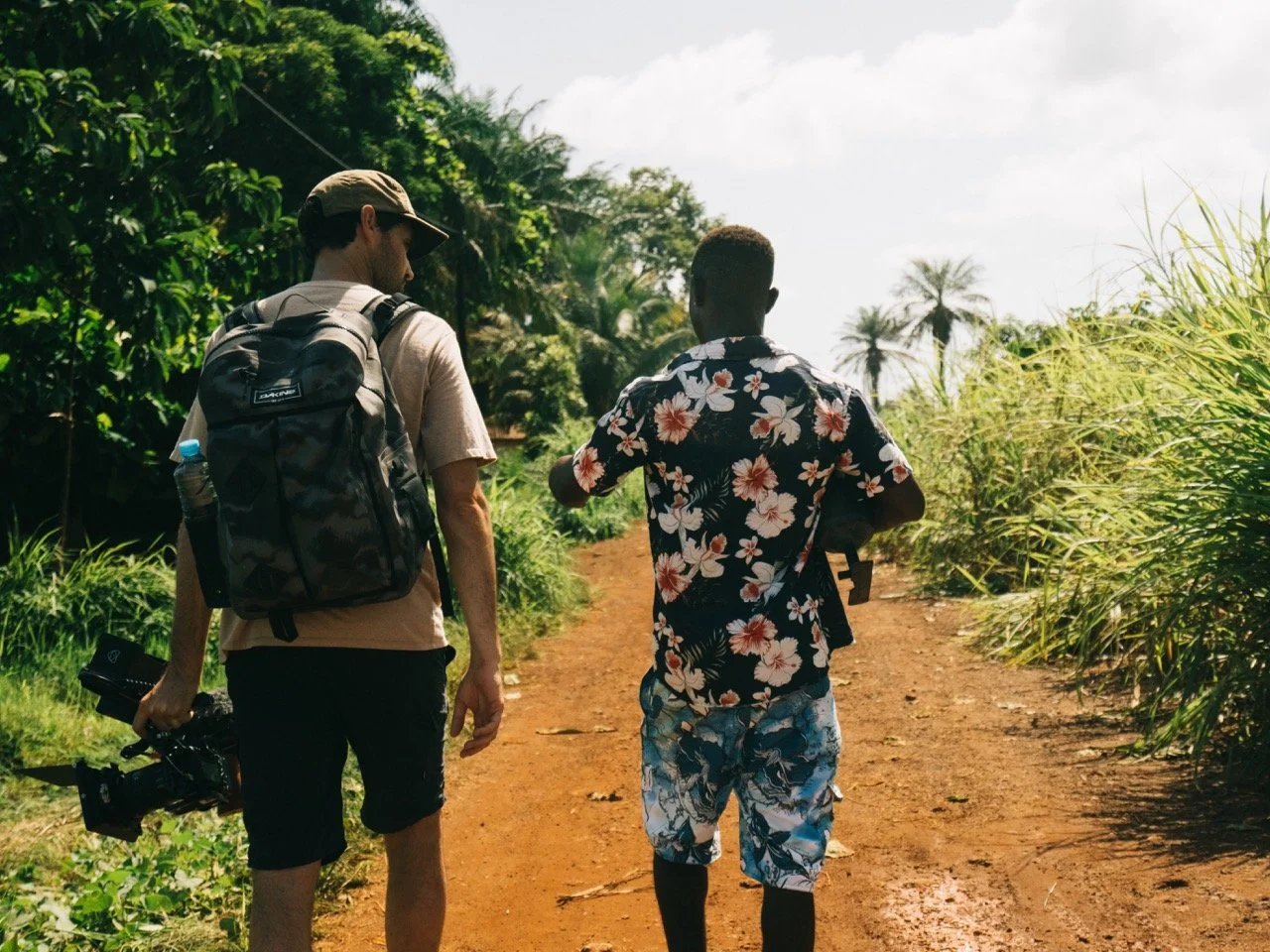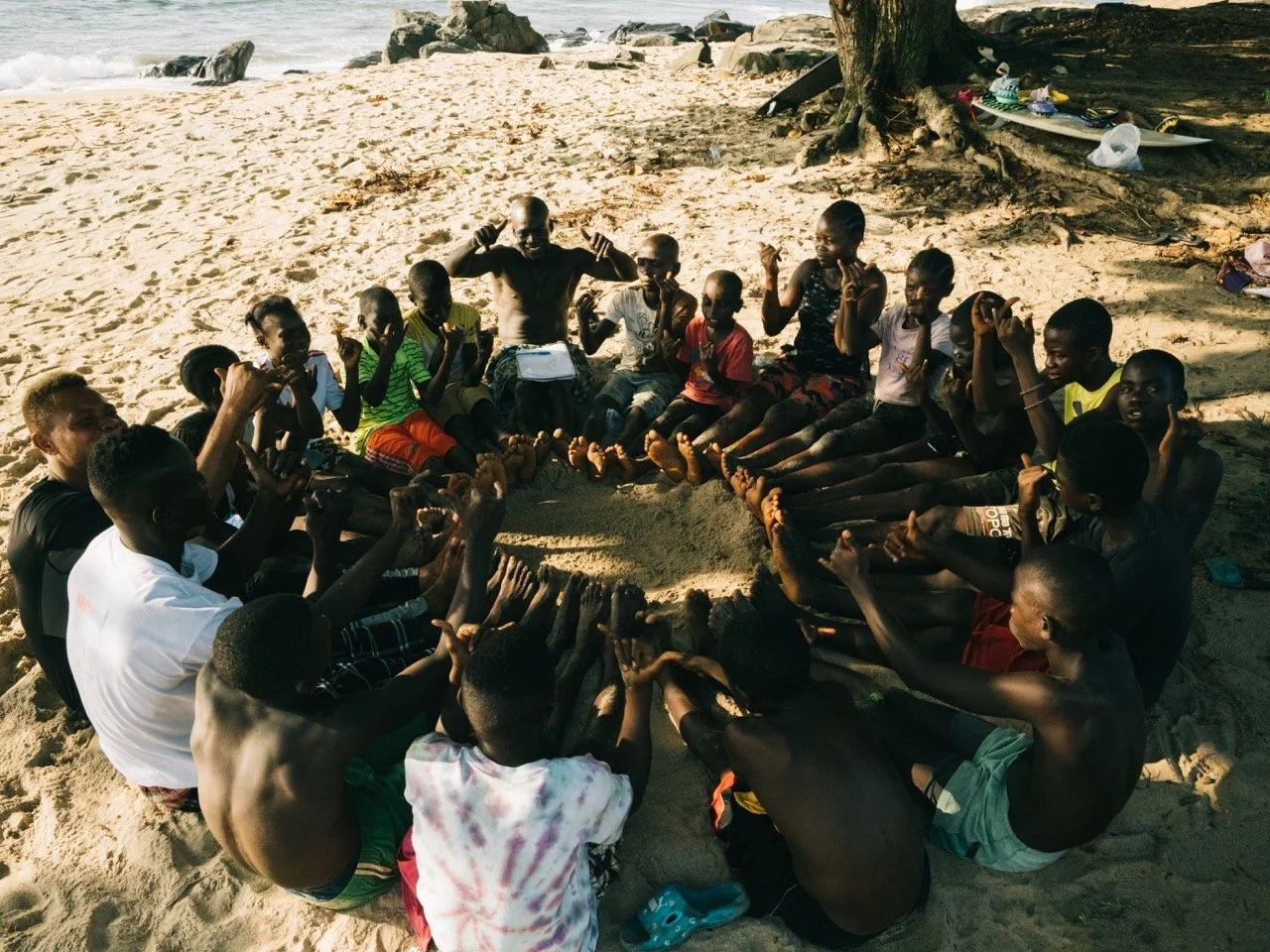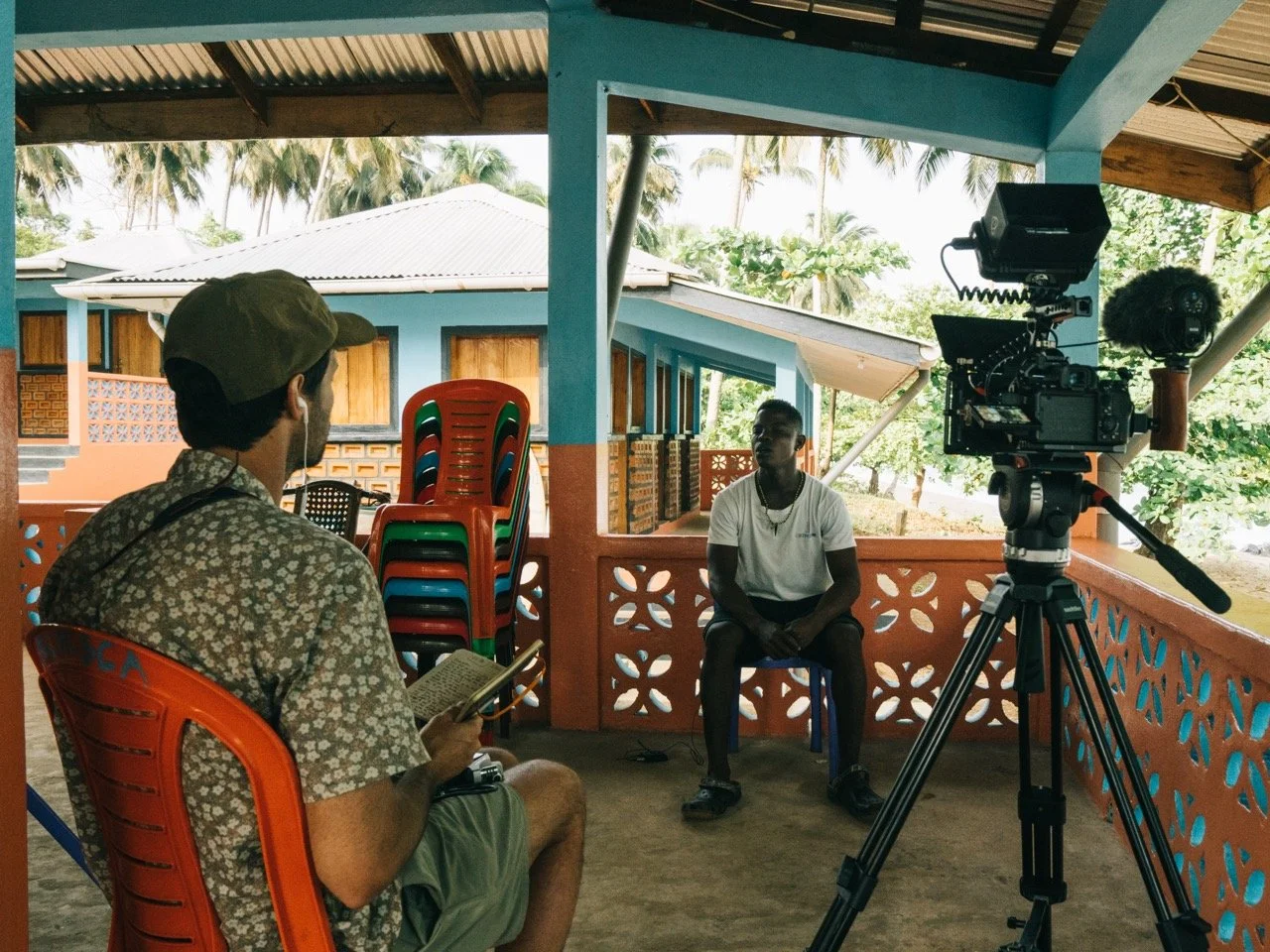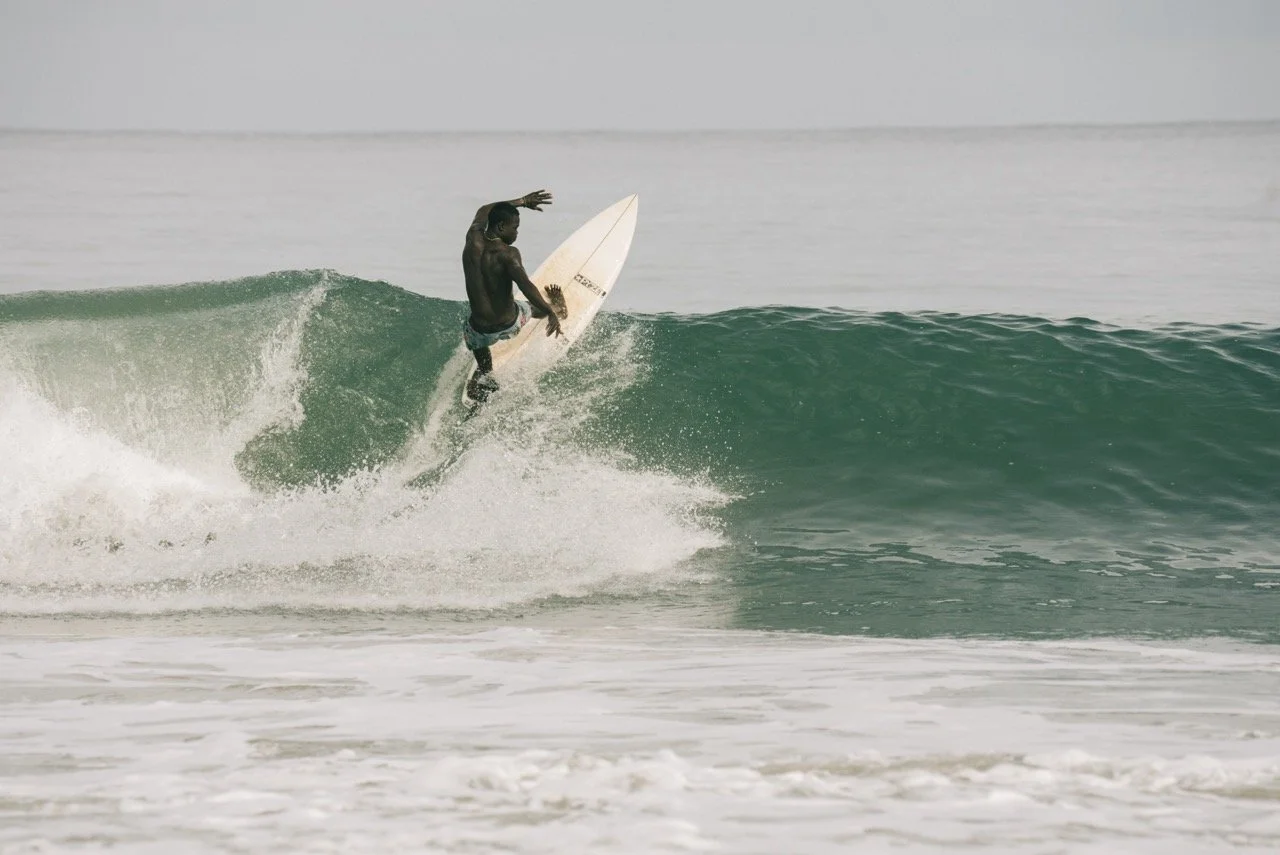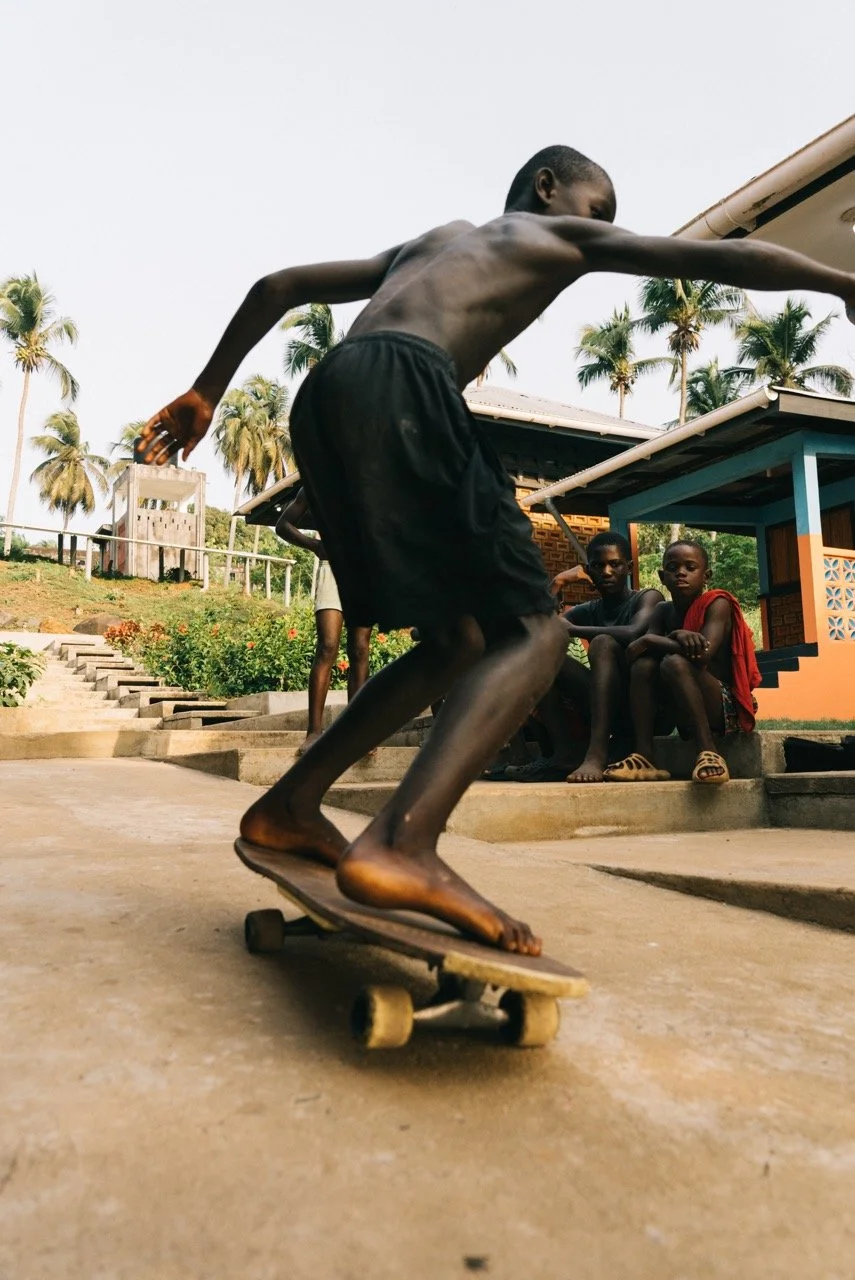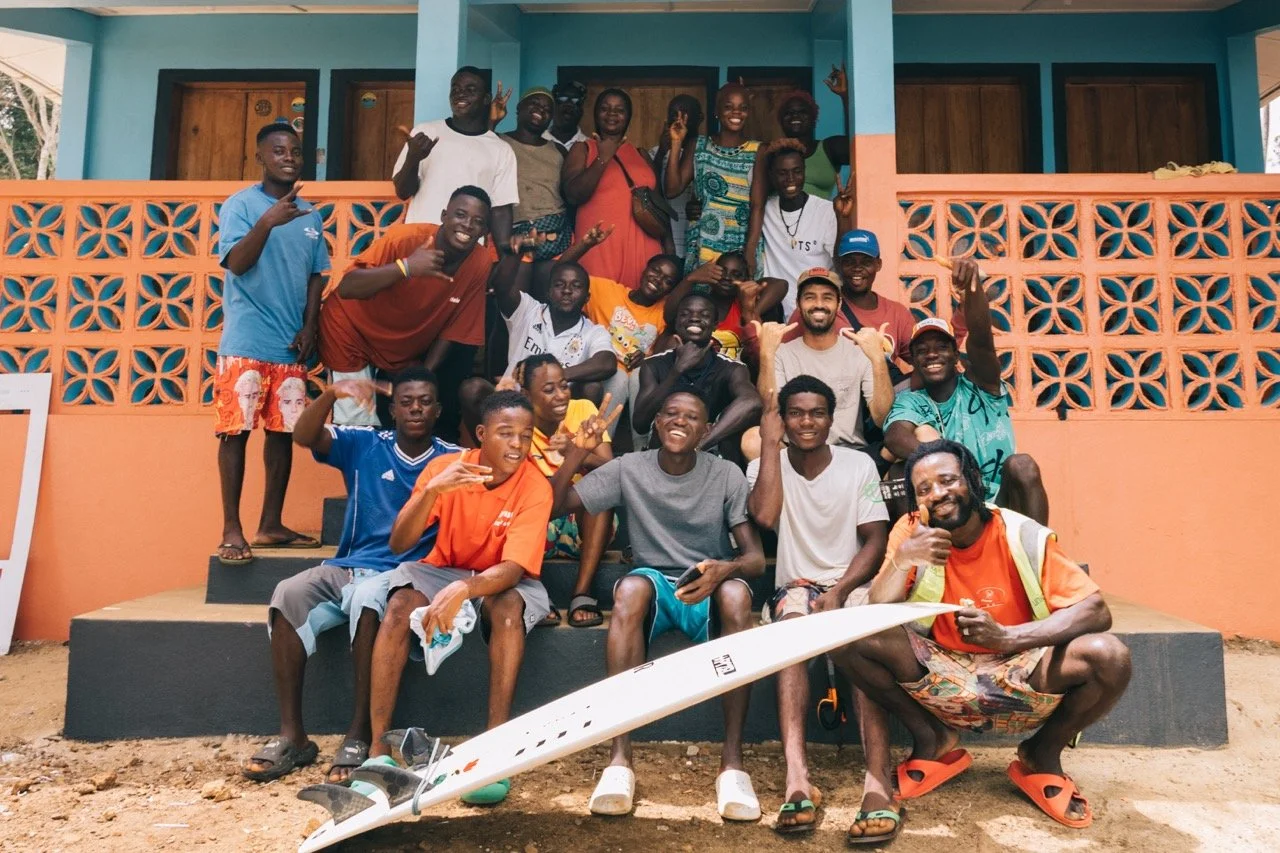This Surf Film Will Reframe The Way You Think Of The Luck Involved In Where You Were Born
WE THE SURFERS is a surf film set in Liberia on the west coast of Africa, but really it is much more than a surf film.
Filmed by Arthur Bourbon, it follows young Liberian surfers paving a new, hopeful future in a country that has been devastated by war and poverty. It serves as reminder of how lucky we are to grow up in countries with access to food, water, healthcare and no one pointing a gun at us when we are barely teenagers to force our hand to fight against a cause we don’t understand. More so, WE THE SURFERS highlights the literal life changing power of our dear sport surfing. In the small town of Robertsport, the village has next to nothing, and yet surfing has become the vessel of change. With the help of the Robertsport Surf Club, Provide The Slide and Universal Outreach, the town now has a fully functioning restaurant, accommodations, surf gear rentals, scholarships, environmental programs, and a surf therapy initiative, allowing locals to make a living off of surfing, and provide a space for children who are dealing with the intergenerational trauma of war and inequality. It is one of the most hopeful, grounding and inspiring films we’ve seen in a long, long time. Read our chat with Arthur below.
WE THE SURFERS is a great example of shining a light on underrepresented communities - what motivates you to do that?
Arthur: Well, to be honest I just find surf movies with just surf action in them kind of boring. I think there are many great stories to be told within surfing. I personally lean more towards the documentary style films with a focus on humans and topics bigger than just surfing itself. The whole storytelling side really interests me and it gives me an opportunity to tell different stories that are different to what is usually being done in surfing. It’s also a good way to reach a wider audience outside of surfing. I feel like this film can be watched and appreciated by people who don’t surf just as much as those who do.
You’ve also been able to balance the struggles of the Liberian people while still showing hope - how hard is it to do that?
That's a good question. I guess first of all, it's about the intention. I wanted to show people that Liberia is, although still very poor and obviously affected by the war, it is not a country in war anymore. It’s a peaceful country now with lots of art and positivity. The energy from the people is positive; they’re smiling and laughing and willing to move forward. No one talks about the war anymore. You can feel it and you can see it, but when you talk to people, it is not about the war. It’s about life. So I wanted to show that. But when you make a film like this, it’s important to have the backstory and so a lot of the people interviewed in the film do have difficult pasts. Some of them, it is obvious war has affected them even without them having to say it but unless you ask them about the war, it’s not something they want to dwell on. They want to talk about the positive stuff like what’s happening in surfing.
Well you’ve done that beautifully, I must say. And also made me want to go and surf in Liberia as I’m sure plenty of people who watch this will do. What would you recommend to those people?
I would say go for sure! A lot of people ask me about tips for Liberia, if it’s safe and what not and I always recommend going. Obviously, it’s still a really poor country. It’s not Bali you know. Or your average surf trip destination. There are certain things you have to think about, you can’t just decide the day before to go, you have to organise a fair bit like vaccines and visas. There’s not a lot of tourism but I think it is worth all the extra logistics because it’s such a special experience and a trip you will never forget. If you want to do it, my advice would be to reach out to the Robertsport Surf Club, and they will set you up.
Great tip. I’d imagine this experience did a lot for reframing what you’re grateful for - what are some of those things?
Oh so much. These people have nothing, you know, but they are still so positive and content. It is the best reminder of how lucky we are to live in France or Australia. It’s inspiring really! To see how happy the people are just to be in the water and have the option to surf. Opportunity really just comes down to luck of where you’ve been born. You and I were lucky enough to be born in France or Australia and so we’ve been able to access food, healthcare, whatever sport we want our whole life. And it’s almost expected by the Western world. We French love to strike, you know, and we’d do that if we couldn’t access any of those things and yet in Liberia they don’t have anything. Some of the kids from the village don’t have food, they just show up on the beach and climb a coconut tree and that’s their breakfast you know. Then they’re out there surfing on a piece of wood. Some of the kids aren’t in school because their parents can’t afford it. That’s where the surf club helps out, getting the kids scholarships. That’s actually one of the most important goals of the surf club - to be able to provide education opportunities.
So surfing is the vessel to provide much bigger things.
Yeah exactly. There was a competition with Robertsport and the Surf Confederation that had prize money. One of the guys who won called me and was like ‘hey I won €400, I’m going to buy this tiny house and create a grocery store.’ That will do so much for that town, you know. It changes their lives.
It must be cool to see the way surfing has actually positively impacted the town.
It really is. And just being able to see it within the time of doing the first movie Water Get No Enemy. I wasn’t supposed to do another movie. I was apprehensive because it’s the same people and the same place but all of the NGOs were so proud of the changes and impacts of the surf clubs, it was a story that needed to be highlighted. The impact of surfing within the community is worth sharing.
Definitely. What do you hope people who watch this come away with?
I think what I said before about just being grateful and aware of how lucky we are. To have jobs and houses and food. Just the opportunities that we are granted simply by growing up where we are. To not have to be a kid and have a gun forced on you and fight for something you don’t even understand. That’s what the reality was for so many of the people in this community. I also think surfing in a way has lost a bit of its soul. There’s so much anger and negativity out in the water now but when you go to a place like Liberia, everyone is sharing waves and smiling and it reminds you of what surfing is and brings. When you witness it, it reminds you of all the reasons you fell in love with surfing in the first place. We forget that and if I can remind people then I’m happy.
Also a question about the Provide The Slide - do you know if there is a way people in Australia can contribute boards? Because I know there would be plenty of people who would have a few lying around.
That would be amazing but I do know it’s pretty complicated logistically. Not that it’s impossible but for now I think just managing the European leg is a lot of work. Hopefully there are moves to expand though. People can still participate by going on to the Provide The Slide website or onto Robertsport Surf Club because they need help to support the children.
I was just about to ask - what are some ways we can help?
Yeah I mean supporting the clubs does a lot of good work but beyond that - if you’re travelling to somewhere poor - bring equipment along that helps. Water filters, medical supplies, school supplies. There are so many ways to help other than just donating. These places need people on the ground physically helping as well so next time you plan a surf trip why not consider adding in a bit of volunteering while you’re there.





